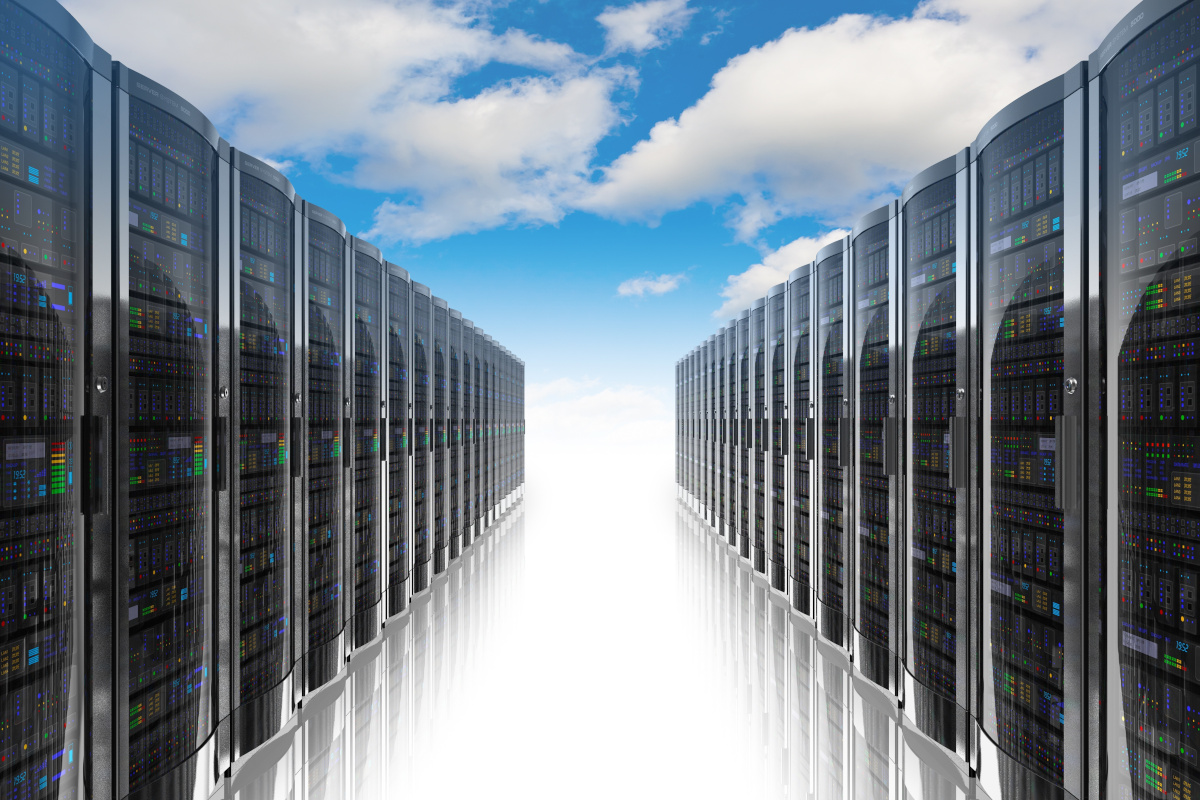How Can Cloud Computing Improve Business Efficiency?
January 2nd, 2024 by admin

We all know that time is money, and in the fast-paced business world, efficiency is the name of the game. If you are still stuck in the era of traditional computing, it's time to break free and soar into the cloud… we don't mean that literally.
No more bulky servers taking up your office space, no more frantic searches for lost files, and certainly no more sleepless nights worrying about data security. Want to know the solution?
Cloud computing!
What Is Cloud Computing?
Cloud computing involves using hosted services, including servers, data storage, software, and networking through the internet. Physical servers store all the data and are maintained by a third-party service provider.
Types of Cloud Computing
Service Models
Infrastructure as a Service (IaaS)
IaaS offers virtualized computing resources through the internet. It includes virtual machines, networking infrastructure, and storage.
It is ideal for businesses with growing needs that require various computing resources. One of the best things about IaaS is that the business does not need to invest in physical hardware. Employees can control and manage the basic infrastructure.
Platform as a Service (PaaS)
PaaS offers a platform through which employees can develop, run, and manage applications and software without dealing with infrastructure complexities.
The pre-configured environment allows you to focus more on application development rather than managing the basic infrastructure.
Software as a Service (SaaS)
SaaS offers software applications through the internet, allowing employees to focus on their work rather than installing, maintaining, and updating the software.
Common examples of SaaS include Gmail – email services, Microsoft 365 – productivity tools, and Salesforce – customer relationship management (CRM).
Deployment Models
Public Cloud
Public clouds are operated by third-party service providers. They offer services and resources to the general public. It is suitable for companies looking for cost-effective solutions for their varying workload.
Private Cloud
Private clouds are tailor-made for a single company. They are either hosted by a third-party provider or hosted on-premises. It is ideal for businesses with specific customization, security, and compliance needs.
Hybrid Cloud
Hybrid clouds combine elements of private and public clouds. They allow you to share data and applications between both clouds. It is ideal for businesses that require flexibility and shift workloads between environments.
Now that you know how cloud computing helps your business, let's take a look at how it improves efficiency:
Unleashing the Efficiency
Flexibility at Your Fingertips
With cloud services, you can easily adjust your computing capacity to match the ebb and flow of what your business needs. Need more storage? The cloud will accommodate decades of files. Hosting a massive event online? The cloud will allow you to video conference with dozens of participants.
Collaborate with Success
Collaboration is the heartbeat of any successful business. Cloud platforms allow your team to collaborate seamlessly, whether they are in the same office or on opposite sides of the globe. It creates a virtual office space where everyone can gather and work together, boosting productivity.
Turn the Disaster Recovery On
Disasters strike when you least expect them, and that includes the digital realm. Traditional methods might involve intricate backup plans and expensive data recovery solutions, but with the cloud, your data is securely stored off-site, ready to be retrieved at the click of a button. If you lose a file on your computer, your work won't be disrupted because you can retrieve it from the cloud.
The Power of 2 As – Access Anywhere, Anytime
The days of being tethered to a desk are long gone. Cloud computing liberates your business from the chains of physical infrastructure. Your team can access data and applications from virtually anywhere with an internet connection.
Whether they are working from home, a coffee shop, or lying down on a towel and sipping a margarita at a tropical beach, the cloud ensures that work can happen whenever and wherever inspiration strikes.
Enhanced Security Measures
The cloud, contrary to some misconceptions, takes security seriously. Cloud service providers invest in state-of-the-art security measures, which individual businesses cannot do on their own. From encryption to multi-factor authentication, the cloud provides a fortress for your data, keeping it safe from digital thieves.
It's high time you cared about this digital revolution.
It can turbocharge your business efficiency, allowing you to collaborate seamlessly with your team, access your work from anywhere on the planet, and scale your operations with just a few clicks. That's the promise of cloud computing!
At ATS, we understand the changing needs of a business. Our cloud computing services are not just a solution but a catalyst for growth and innovation. From startups aiming for scalability to established businesses seeking efficiency, we can customize the cloud for any setup.
If you want to learn more about Cloud Computing, contact us today.
Posted in: Cloud Solutions

